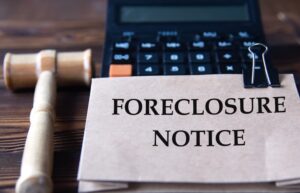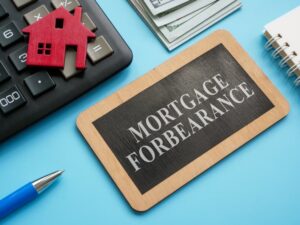Commercial Foreclosure
If you find yourself facing a commercial foreclosure, it can be a daunting and overwhelming experience. Commercial real estate transactions have high stakes for all involved parties. Once the deal closes, buyers often have an obligation to pay the lenders if they have obtained financing. If something goes wrong during a commercial real estate transaction, buyers may have to deal with financial distress at some point when they own the property.
Both the borrower and lender need legal help if the mortgage is delinquent. From the buyer’s standpoint, it must ensure that the lender is following the law. Buyers can challenge the foreclosure and even sue the lender for wrongful conduct. Lenders also need to ensure that they comply with all of their legal obligations so they can foreclose on the property and protect themselves from liability. Whether you are a lender looking to initiate a commercial foreclosure or a borrower facing the potential loss of your property, having a knowledgeable attorney by your side is important.
A commercial real estate attorney can help assess your legal options and whether you can fight the foreclosure as a borrower (you can try to stop it whether your state uses judicial or non-judicial foreclosure). The foreclosure process involves a series of legal steps, and it is essential to have someone who can explain each stage clearly and advise you on the best course of action. Even if you are in financial distress, you should invest in getting legal help because the consequences can be far worse for you otherwise.
Default Can Occur When Borrowers Fall Behind on Their Mortgages
When someone buys a commercial property, they take out a loan from a lender they must repay. Like a residential mortgage, the property owner does not fully own it because the lender has a lien. If you fail to make your payments, the lender may foreclose on the property. Still, as the property owner, you have certain rights that the lender must uphold during the foreclosure process. If a violation of your rights occurs, you can fight the foreclosure or file a lawsuit.
You may be in danger of foreclosure when you fall behind on your commercial mortgage payments. At that point, you are in default. Once that happens, it may begin a period for you to get out of default before the lender initiates foreclosure proceeds. In commercial real estate loans, the lender may accelerate the loan and request that you pay the due balance. If that occurs, you will find it extremely difficult to meet that obligation, increasing the likelihood that it will begin foreclosure proceedings.
Lenders must send you a notice of default explicitly outlining how you failed to pay the loan. They will give you a certain period to make the payments before they take further action. In most cases, you will get thirty days to make the payments and get current on your mortgage. In other words, you have a cure period before the foreclosure proceedings can begin.
The amount of protection that you have depends on the state in which you reside. Some states require that lenders undergo a judicial process before taking your property. Other states allow for a less formal, non-judicial process, which can diminish your rights as an owner. Therefore, you must know your rights so you know how and when you may need to participate in the foreclosure process.
Judicial Foreclosure Proceedings

Borrowers must have due process before the foreclosure occurs. They have the legal right to their day in court to make any arguments necessary to put a stop to the foreclosure.
Some defenses to foreclosure can include the following:
- The lender failed to comply with the procedural requirements for foreclosure.
- The lender did not provide the borrower with adequate notice of foreclosure.
- The lender interfered with the borrower’s ability to repay the mortgage.
- There was lender misconduct, either in how it agreed to the loan or in how it acted during the mortgage.
- There was a mistake in servicing the commercial mortgage.
Ultimately, a judge will hear the borrower’s arguments before determining whether the lender can proceed with the foreclosure. Borrowers always have the chance to stop the foreclosure in court, but they must respond and show up when lenders serve them with notice of the foreclosure process. Otherwise, the lender has the right to foreclose on the property by default.
Non-Judicial Foreclosure Proceedings
If you live in a state that allows non-judicial foreclosures, your loan agreement will likely have a clause that allows the lender to sell your property without going through the court system. Here, lenders will enlist the assistance of a foreclosure trustee, who will help them in the process.
Just because the lender does not have to go to court to foreclose does not mean that the borrower cannot stop the process. However, the borrower will have to take action in court. Borrowers may need to seek a temporary restraining order first so the court can halt the foreclosure. They will typically only obtain a restraining order when they are likely to succeed on the case’s merits. After that, the court will conduct a more robust hearing to decide whether to halt the foreclosure. Borrowers will use the same defenses that they would use if the lender were the one who initiated the court process. The borrower has the burden of proof to show that the lender acted improperly.
Negotiating a Forbearance of the Loan or Other Modification Options

Thus, lenders may have every incentive to work out a forbearance agreement to prevent foreclosure. It is not entirely accurate to say that all banks are “trigger-happy” to foreclose on the property at the first possible moment. Instead, lenders may even be willing to modify the terms of the mortgage, lowering the rate or adjusting the amount that is due. Borrowers should always seek to negotiate with lenders to avoid foreclosure if they are willing to talk. They may reach an agreement that can delay or forestall foreclosure.
Borrowers may seek to raise new equity or issue new debt to obtain funds to stay current on their mortgage. Although this new funding may not be on advantageous terms, it may be all they can do to avoid foreclosure.
Appointing a receiver for the property is one alternative to an immediate foreclosure. The receiver will manage the property in the meantime, acting in the interests of both the lender and borrower while the two parties try to find a solution. The receiver will take control of the property and may even decide to sell it eventually. Nonetheless, it may be in the borrower’s interest to seek receivership because it may buy more time to get the financial house in order.
How Long Will the Foreclosure Process Take?
The length of the commercial real estate foreclosure process depends on whether the borrower contests it. If litigation occurs beyond the initial foreclosure hearing, it will add considerable time to the process. Borrowers have the right to cure their default until the completion of the foreclosure.
At a minimum, you can expect the foreclosure process to take at least several months (or even more time if there is a lawsuit). Much depends on the court’s docket and when the lender initiates the proceedings. Some lenders may go to court more quickly, while others may give the borrower more time to cure the default or to work out a solution.
Suing a Lender for Wrongful Foreclosure or Abusive Practices
A commercial mortgage is a contract between the borrower and the lender. Each side has its rights and obligations, and there are times when the borrowers can take legal action against the lenders. Not only can they potentially put a stop to the foreclosure, but they can also receive damages when they have suffered harm.
A borrower can sue a lender in the following instances:
- Breach of contract: Borrowers can sue lenders if they fail to uphold their commitments under the contract.
- Breach of an implied duty of good faith and fair dealing: Lenders have an implied duty to act in good faith, and borrowers can sue them if they violate that duty by taking steps that hasten or cause a foreclosure.
- Breach of fiduciary duty: The lender is not necessarily a fiduciary, but parties can sue the trustee for its practices in conducting the foreclosure sale. There are also times when the lender can act in a relationship with the borrower, which makes it a fiduciary. Then, the lender must avoid conflicts of interest.
- Fraud: Lenders may have fraudulently induced a mortgage loan by making affirmative misstatements or failing to disclose material facts.
- Economic duress: Lenders may have made wrongful threats to the borrowers at some point in their relationship or as the property neared foreclosure.
- Improper sale of collateral: Lenders may have effected a sale of collateral after a default using commercially unreasonable methods.
Borrowers may also challenge the foreclosure if there are allegations of the lender’s wrongful conduct. For example, if the lender misrepresents the loan terms, the buyer may seek to stop the foreclosure.
Lenders and borrowers need help from a commercial real estate attorney if there is a potential foreclosure. A lawyer can ensure lenders take all necessary steps to initiate foreclosure proceedings, including filing the appropriate documents, providing notice to the borrower, and handling any legal challenges. They can also assist in negotiating with the borrower for an alternative solution, such as a loan modification or repayment plan.
On the other hand, borrowers facing foreclosure need legal representation to help them understand their options and rights. A lawyer can review the loan documents, assess potential defenses, and assist in negotiating with the lender. They may help borrowers avoid foreclosure through options like loan forbearance, short sale, or deed instead of foreclosure.
Contact a Commercial Real Estate Attorney

A commercial real estate lawyer can help you explore alternative options to foreclosure. In some cases, it may be possible to negotiate a workout or loan modification with the lender, potentially saving your property from foreclosure. An attorney with experience in commercial real estate can assess your situation, identify alternatives, and negotiate on your behalf to achieve the best possible outcome.
Contact a commercial real estate lawyer early in the process to have more options. By partnering with a lawyer experienced in foreclosure law, you can gain valuable guidance and support to protect your interests and find the most favorable outcome possible. They can help you through this challenging situation with their knowledge of the legal system. Do not face commercial foreclosure alone – reach out to an attorney who can guide you through the process and protect your best interests.
